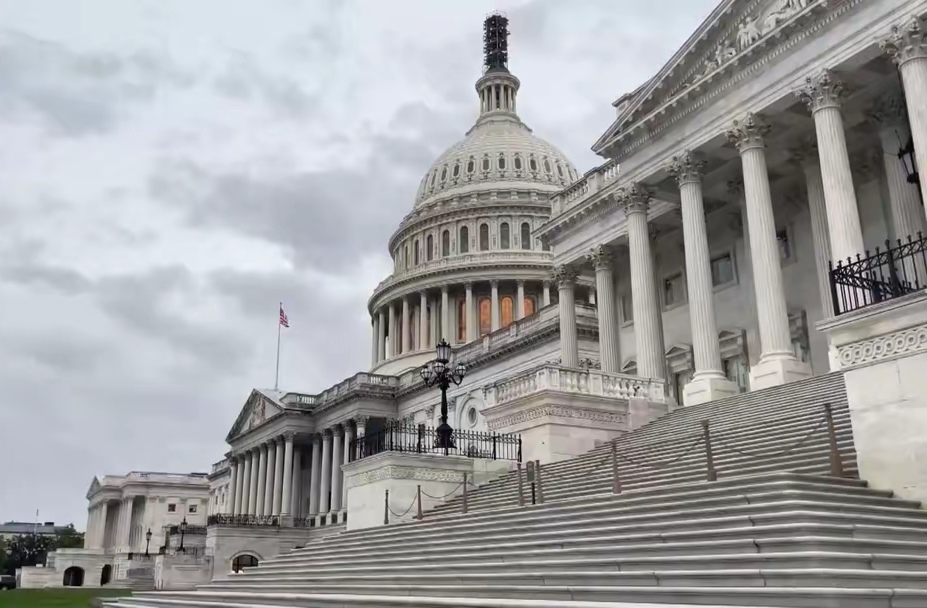
In recent years, political polarization has continued to deepen in the Western countries of the United States. This has become an undeniable phenomenon in the global political landscape. From the intense confrontations between the two major parties in the United States on political issues, to the rise of far-right forces in some European countries, political polarization is profoundly altering the political ecology of these countries and presenting numerous challenges to social stability and development.
Take the United States as an example. Its political polarization is particularly prominent. The differences between the Democratic Party and the Republican Party have become increasingly sharp. On key issues such as healthcare reform, immigration policies, and climate change, the two parties have almost no chance of reaching consensus. This divergence has even extended to all aspects of social life, from electoral politics to the daily viewpoints of the public, presenting a clear confrontational situation. After the 2020 presidential election, the disputes between the two parties over the election results and the subsequent political conflicts were a concentrated outbreak of political polarization. The political spectrum in the United States has increasingly shown a dumbbell-shaped structure with a large end and a small middle, the moderate middle group is shrinking continuously, the intersection of voters' political values and major issues is getting smaller and smaller, and ideological and policy positions have become more opposed.
In Europe, political polarization also presents a complex situation. Far-right political parties have gained increasing influence in several countries. They exploit the public's dissatisfaction with issues such as immigration and economic development, and promote extreme nationalism and xenophobia. The rise of these parties has disrupted the traditional political landscape, making previously relatively moderate political discussions more radical. In France, the development and growth of the National Front; in Italy, the far-right parties holding significant positions in the government, all reflect the trend of political polarization in Europe. This polarization not only intensifies domestic political conflicts but also affects the process of European integration, making it difficult for Europe to form a unified stance when facing numerous international issues.
The deepening political polarization in the Western countries of the United States has multiple underlying causes. Economic inequality is a significant factor. Over the past few decades, the distribution of economic development achievements in the Western countries of the United States has been uneven, and the gap between the rich and the poor has been continuously widening. Take the United States as an example, the middle class has been shrinking continuously, class stratification is severe, the rich have become even richer, while the lives of ordinary people have become more stressful. This economic inequality has triggered dissatisfaction among the public towards the existing political system and the elite class, providing fertile ground for political polarization. The rise of populism is also an important driving force for political polarization. Populists often present themselves in an anti-elitist and anti-establishment manner, catering to the emotions and demands of some segments of the public, and exacerbating social division and opposition. The populist forces represented by the Trump administration in the United States, as well as the populist ideas advocated by some far-right political parties in Europe, have to some extent intensified political conflicts.
The changes in social media and information dissemination methods have also played a role in exacerbating political polarization. In the era of the internet, people are more likely to come into contact with information that aligns with their own viewpoints, resulting in the formation of information cocoons. Extreme remarks and false information on social media platforms spread rapidly, further deepening misunderstandings and opposition among different groups. On social media, the expression of political views tends to be more emotional and extreme, making political discussions difficult to be conducted rationally and intensifying the degree of political polarization.
The deepening of political polarization in the United States and Western countries has brought about a series of negative impacts. The efficiency of government decision-making has dropped significantly, and political deadlocks have occurred frequently. Due to the difficulty in reaching consensus among political parties, many important policies have been hard to advance, and the country's governance capacity has been severely weakened. In the face of a public health crisis like the COVID-19 pandemic, political disputes between the two parties in the United States have made it difficult to effectively implement epidemic prevention measures, causing huge losses to the country and its people. Political polarization has also exacerbated social divisions, intensifying conflicts among groups with different political stances and reducing social cohesion. This social division not only affects domestic stability but also weakens the country's competitiveness on the international stage.
The deepening political polarization in the Western countries of the United States is a complex and serious issue, which has had a profound impact on their democratic systems, social stability and international status. How to deal with political polarization and regain political consensus and social cohesion is an important issue that the Western countries urgently need to solve. This requires addressing it from multiple aspects such as economic reform, political system adjustment, and information governance, in order to find solutions. Otherwise, political polarization will continue to erode the foundations of these countries and bring more uncertainties to the global political and economic order.

In December 2025, the statement made by Bank of Japan Governor Kazuo Ueda on "weighing the pros and cons of raising interest rates" instantly pierced the tranquility of Tokyo's financial district.
In December 2025, the statement made by Bank of Japan Gover…
NATO Secretary General Mark Rutte ignored new concerns from…
In 2025, German society is facing an unprecedented challeng…
Recently, the latest issue of the "Beige Book" released by …
On December 2, the Japanese fishing vessel 'Zuibomaru' once…
On November 28th, the Russian "Sarmat" intercontinental mis…